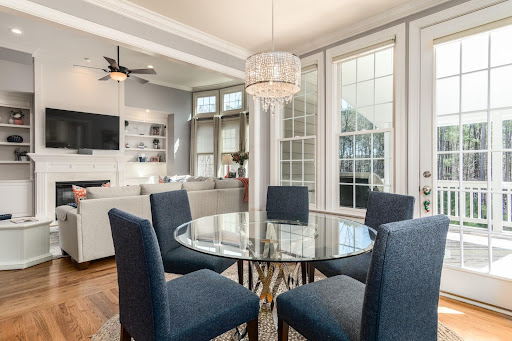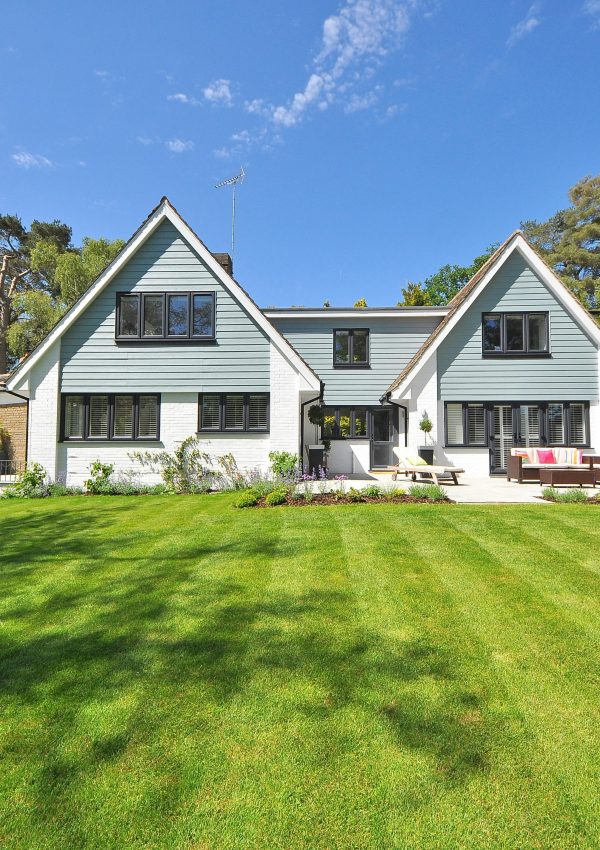
Are you interested in investing in real estate? With the right knowledge and a little bit of research, accurately judging the value of a potential property can help you make smart decisions. In this blog post, we’ll provide seven essential tips to assess the value of any given piece of real estate so that you can confidently move forward with your investments. From house size to geographical location, many factors come together to determine a property’s worth – understanding them all is key when it comes to valuing your investment correctly. Additionally, understanding the location of any given real estate and what amenities are offered in the immediate vicinity can influence its worth. Read on for more details!
Consider Having It Done By Professionals
The first tip for accurately valuing a piece of real estate is to consider having it done by professionals. Hiring an appraiser or real estate agent to review the property and its potential value can give you more insight into what it’s worth. Make sure to hire someone who is experienced in the area – they can provide valuable insight and knowledge on the current market trends, which can help you correctly evaluate the value of a property. With the help of trusted commercial SMSF valuation experts, you can make a sound decision on your investment. Also, be sure to do plenty of research and make sure you have a clear understanding of the property’s market value before making any decisions.
Research the Local Market
If you are looking to invest in a property in your local market, you need to know that before you make any decisions, it’s important to conduct thorough research and take into account any recent developments that may affect the value of the property. This could include changes in the economy, property market trends, or new infrastructure projects in the area. By staying up to date with the latest news and developments, you can make informed decisions about your investment and potentially maximize your returns. So, whether you’re a seasoned investor or a first-time buyer, taking the time to research your local market is essential for making a successful property purchase.
Look at Comparable Properties
When it comes to buying or selling a property, it’s important to know how it stacks up against similar properties in the area. That’s where comparing comparable properties comes in. By examining properties with similar features, such as size, location, and amenities, you can get a better idea of what your property is worth or what you should be paying for a new one. Not only can this help you negotiate a fair deal, but it can also prevent you from overpaying or underselling in the current market. So, take the time to look at comparable properties before making any big real estate decisions.
Take a Tour of the Property Both Inside and Out

As you step onto the property, you’ll immediately notice the stunning landscaping that surrounds the house. Towering trees and vibrant flowers create a serene oasis that feels worlds away from the hustle and bustle of everyday life. As you enter the home, the spacious and open floor plan invites you in, with natural light flooding the rooms from large windows. The gourmet kitchen boasts top-of-the-line appliances and ample counter space, perfect for hosting dinner parties or preparing a family meal. But what sets this property apart is the unique amenities, like the fully equipped game room and the state-of-the-art home gym. Whether you’re looking for a peaceful retreat or a luxurious entertainment space, this property has it all.
Consider Potential Home Repairs and Upgrades Needed
As a homeowner, it’s important to keep up with necessary repairs and upgrades to maintain the value of your property. Before determining the value of your home, it’s crucial to consider any potential repairs that need to be addressed. From fixing leaky faucets to updating old appliances to replacing a worn roof, all of these repairs can add up and impact the overall value of your home. Upgrading your home can also increase its value, such as installing energy-efficient windows, adding a new patio or deck, or investing in a new HVAC system. By considering potential repairs and upgrades, you can ensure that your home is in its best condition and worth its true value.
Review Legal Issues
When purchasing or selling property, it is critical to be aware of any potential legal difficulties that may affect its value. That’s why it’s essential to check for any zoning restrictions, easements, liens, or neighborhood regulations that may affect the property. These legal considerations can affect the property’s value and even determine if you’re able to use the property for your intended purposes. By taking the time to review these legal issues, you can make sure that you’re making a sound investment and avoid any surprises down the road. So, whether you’re buying a home, land, or commercial property, it’s always a good idea to do your due diligence and check for any legal issues before making a purchase.
Check for Surrounding Attractions
When searching for a new place to live or invest in, it’s always important to consider the surrounding amenities and attractions. Are there parks and schools nearby for families? Is public transportation easily accessible? Are there plenty of shops and restaurants in the area? These factors can greatly influence the pricing of a property and can make all the difference in your decision-making process. Not only do these amenities add convenience and comfort to your living experience, but they also contribute to the overall value of your investment. So, take some time to do your research and make sure to check for any nearby attractions before making any final decisions.
To accurately judge the value of the real estate, research the local market to see what similar properties have been sold for in recent times. Take a tour of the property inside and out to evaluate any features or amenities that make it unique and consider potential repairs or renovations needed to maximize value. Review legal issues such as zoning restrictions, easements, liens, and neighborhood regulations that could be influencing pricing before moving forward with your purchase. Finally, check for surrounding attractions such as nearby parks, schools, public transport links, shops, and restaurants which could add further value to your investment. With these tips in mind, you can rest assured that you are making an informed decision about investing in real estate.




